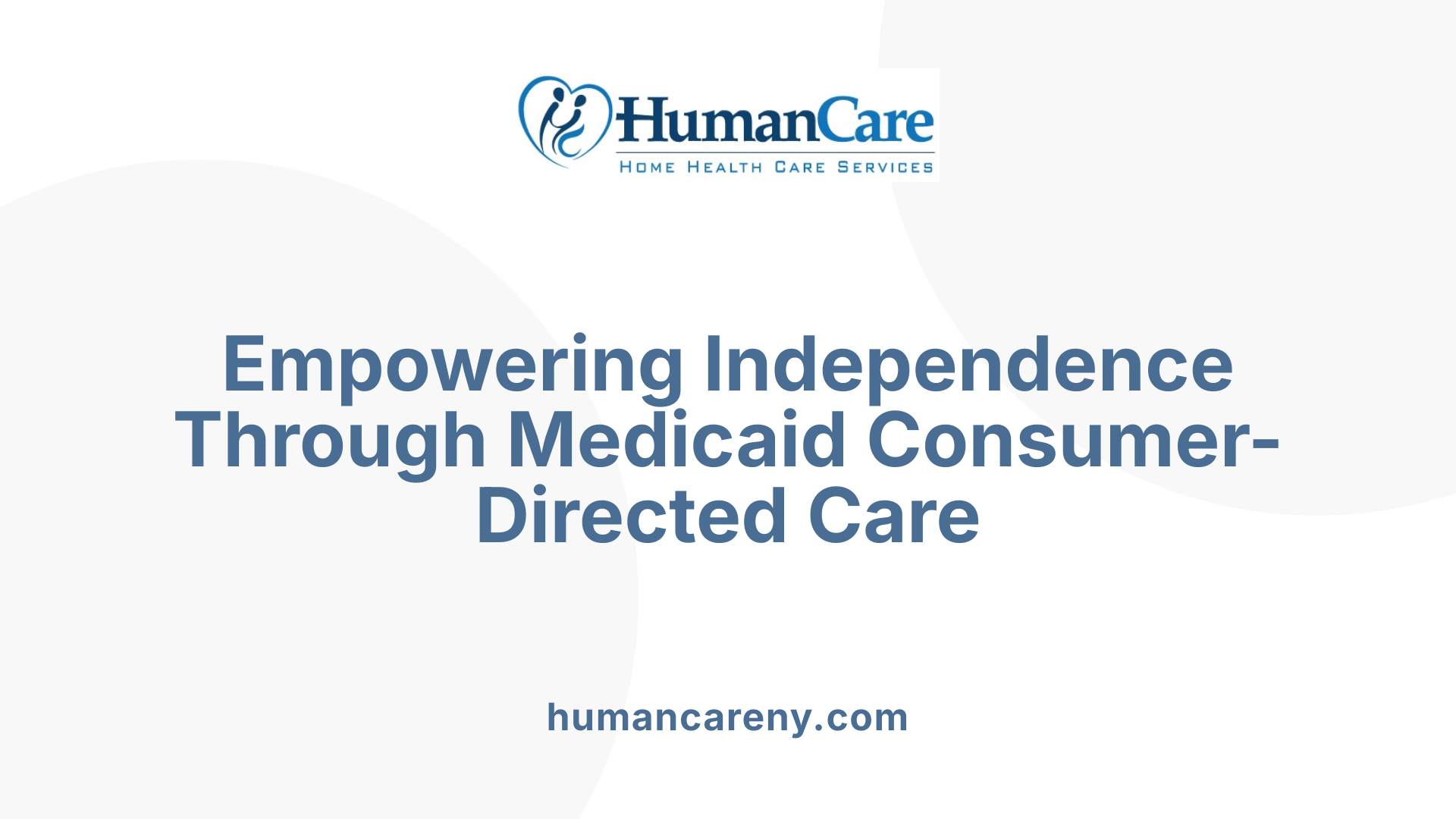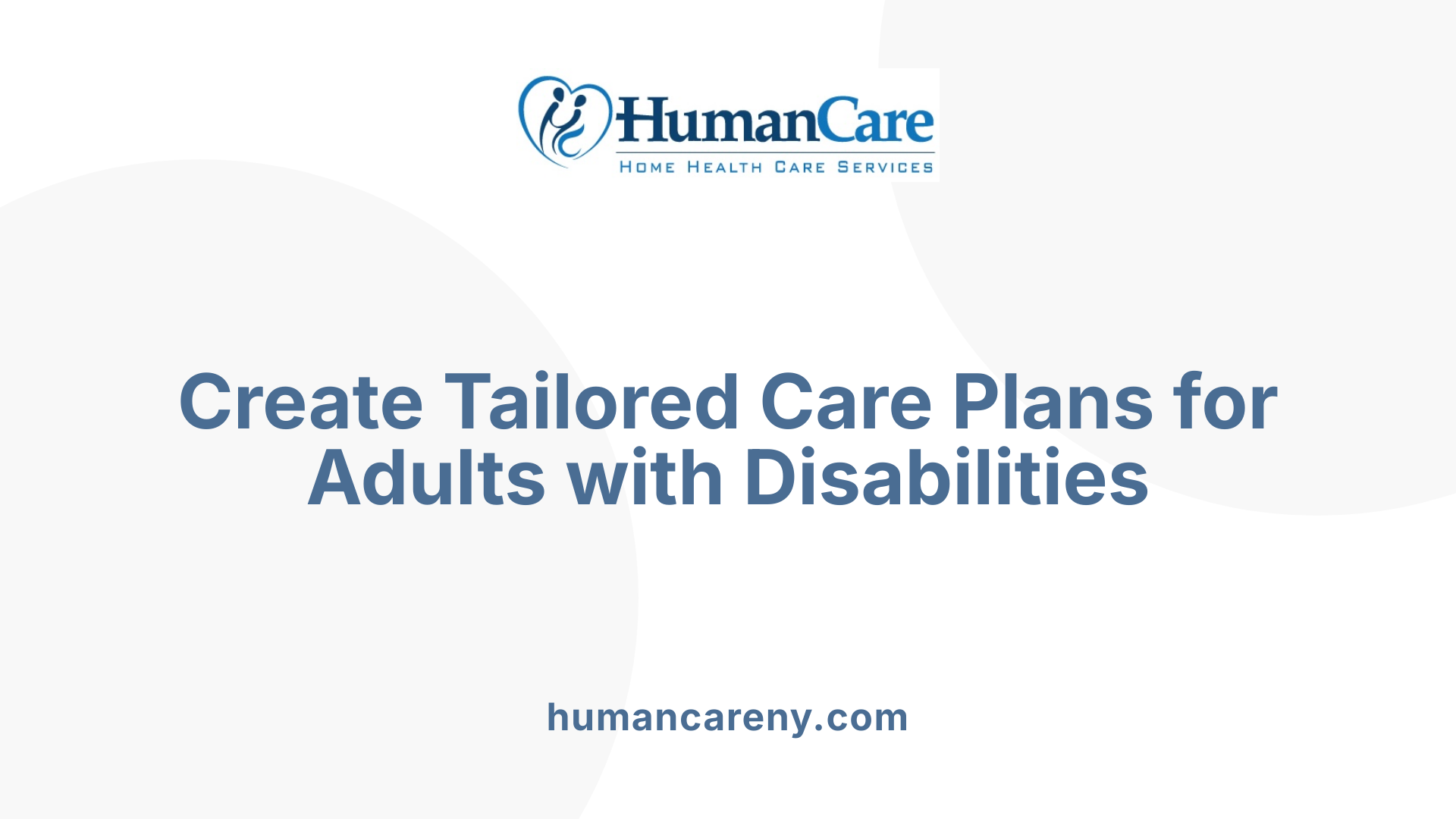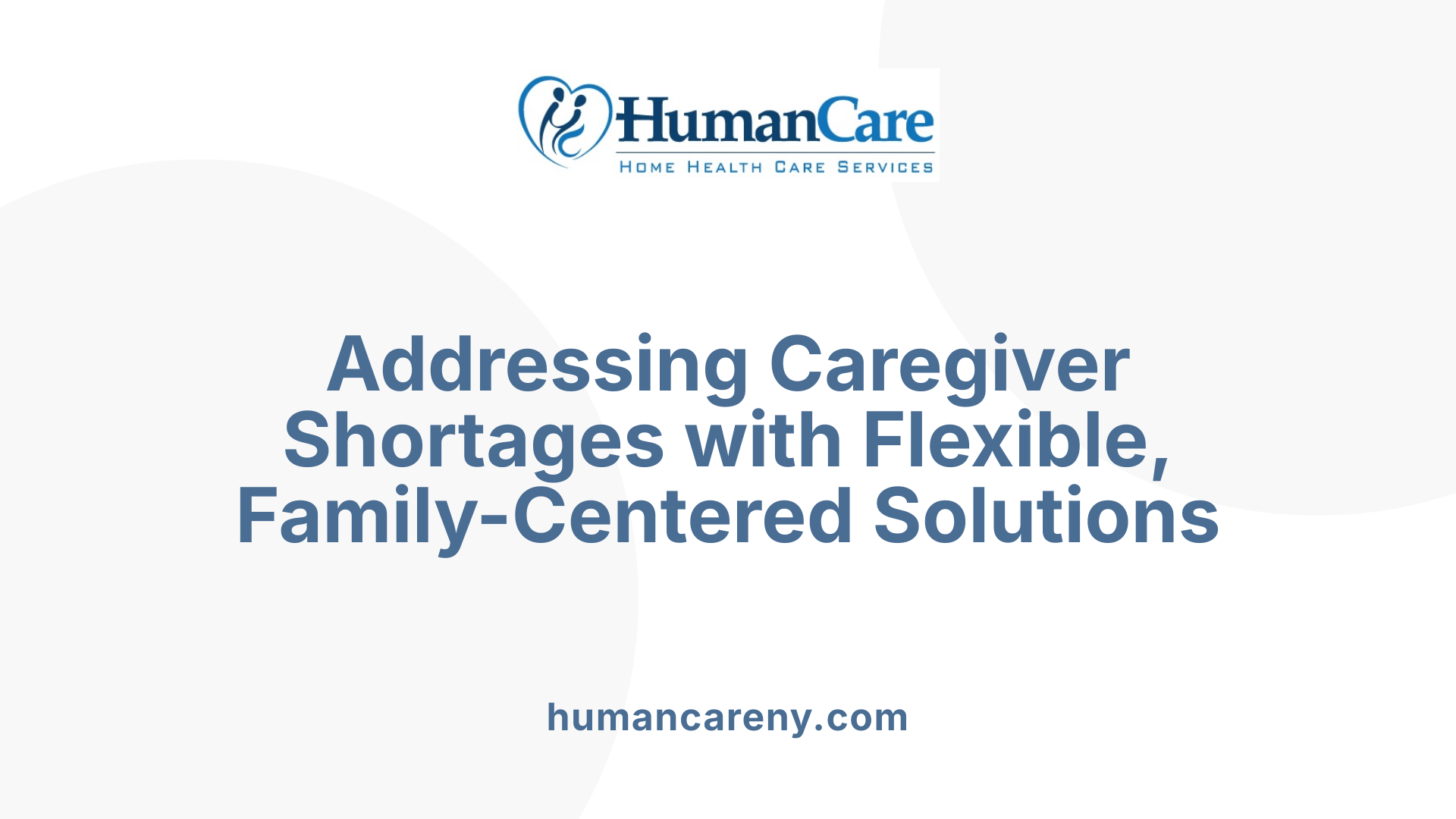The Growing Need for In-Home Care Services
As the demand for personalized care rises, homemaking support for adults with disabilities has become an essential component of healthcare. With more individuals choosing home-based care over institutional settings, understanding the benefits and frameworks that support this choice is critical for families, caregivers, and policymakers alike.
Understanding Homemaking Support for Adults with Disabilities
What is Homemaking Support?
Homemaking support refers to in-home care services designed to help adults with disabilities manage daily activities and personal needs. This support often includes assistance with household tasks, medication management, mobility, and personal care, all tailored to an individual's unique health conditions and lifestyle.
How Does In-Home Care Benefit Adults with Disabilities?
In-home care allows adults with disabilities to live independently or with family rather than moving into institutional settings. Caregivers work directly with clients to provide personalized, compassionate support. This close interaction helps monitor health changes, ensures safety, and promotes better health outcomes. It also supports mental well-being by keeping individuals in familiar surroundings, which reduces anxiety and fosters a stable routine.
How Is Homemaking Support Different from Institutional Care?
Unlike institutional care, which provides services in facilities, homemaking support happens in the client’s home. This approach promotes independence and allows individuals to participate actively in health decisions. The care plans are regularly updated to reflect changing needs, focusing on personalized support rather than standardized care. Homemaking support also emphasizes maintaining quality of life through customized activities, healthy lifestyle encouragement, and one-on-one attention from trained caregivers.
Medicaid-Funded Consumer-Directed Care Programs

What are Medicaid Consumer-Directed Care Programs?
Medicaid-funded consumer-directed care programs empower individuals with long-term care needs to take control of their personal care services. These programs allow enrollees to hire caregivers of their choice, including family members, to provide support tailored to their unique needs and preferences.
How Do These Programs Allow Family Caregivers?
A distinctive feature of these consumer-directed programs is the ability to pay family members as caregivers. This approach recognizes the important role family members play in providing compassionate, personalized care while promoting the enrollee's independence and comfort.
What Medicaid Authorities Support These Programs?
States develop consumer-directed care options using Medicaid authorities such as 1915(c) waivers and state plan options. These authorities specifically permit the employment and payment of family members to deliver personal care services, facilitating flexible and person-centered support.
Programs in states like Connecticut, Florida, and Virginia illustrate these approaches effectively. For example, Connecticut’s Community First Choice program uses a universal assessment to set care budgets and allows hiring qualified family members. Florida’s participant-directed option requires enrollees to manage their caregivers, with managed care plans arranging payments. Virginia’s program reimburses relatives other than spouses or parents of minor children and provides support through Medicaid-enrolled service facilitators.
These consumer-directed programs reflect a growing trend to support person-centered care, promote health equity, and address workforce shortages in home-based services, especially in light of challenges such as the COVID-19 pandemic.
State Examples of Consumer-Directed Care Programs

Connecticut Community First Choice Program
Connecticut’s Community First Choice (CFC) program empowers Medicaid enrollees to hire family members or other individuals as caregivers, provided they meet specific qualification standards. The program uses a universal assessment tool to determine each enrollee's care budget, making sure that support is tailored to their unique needs.
Florida Participant-Directed Option
In Florida, the participant-directed option (PDO) places responsibilities on enrollees to recruit, train, and manage their caregivers. Managed care plans in the state handle fee schedules and payments, encouraging consumer control while ensuring proper compensation and oversight.
Virginia’s Family Caregiver Reimbursement
Virginia’s consumer-directed care program allows relatives, except spouses or parents of minor children, to receive reimbursement for providing care. Medicaid-enrolled service facilitators assist enrollees in managing their services, which helps maintain a smooth and supportive care experience.
These examples highlight how states are leveraging Medicaid authorities to support family caregivers, fostering person-centered and flexible home-based care solutions that align with individual preferences and needs.
Benefits of Employing Family Members as Caregivers

How Does Employing Family Members Promote Person-Centered Care?
Allowing Medicaid enrollees to hire family members as caregivers supports highly personalized care tailored to an individual's unique medical and personal needs. Family caregivers often have deep knowledge of an enrollee's preferences and routines, contributing to compassionate, one-on-one support that fosters independence. This arrangement helps create personalized care plans that are regularly updated to reflect changes in health conditions and lifestyle.
In What Ways Does This Approach Support Health Equity?
Consumer-directed care programs funded by Medicaid provide options to diverse populations, including those who might not otherwise access formal caregiving services. By enabling family caregivers to be paid, these programs help bridge care gaps and address disparities, ensuring that enrollees receive adequate support within their communities. Programs in states like Connecticut, Florida, and Virginia exemplify how Medicaid authorities facilitate equitable access to in-home care.
How Does Hiring Family Caregivers Help Address Workforce Shortages?
Medicaid-funded programs respond to a growing demand for home-based services amidst workforce shortages and challenges heightened by the COVID-19 pandemic. Employing family members expands the available caregiving workforce, relieving pressure on traditional home healthcare providers. This model also empowers enrollees to actively manage care responsibilities such as hiring, training, and supervising caregivers, further supporting sustainable long-term care solutions.
Together, these benefits highlight the value of integrating family caregivers into Medicaid consumer-directed care programs, promoting health outcomes, supporting independence, and addressing broader systemic challenges in long-term care provision.
Personalized Care Planning in Home Care

What Are Individualized Care Plans?
Individualized care plans serve as the foundation of effective home care for adults with disabilities. These plans are carefully crafted to meet each person's unique medical conditions, personal preferences, and lifestyle needs. They ensure that care is not offered on a one-size-fits-all basis but is instead tailored to reflect the nuances of every individual’s health and daily living requirements.
How Are Care Plans Regularly Reviewed and Adjusted?
Home care programs emphasize continuous evaluation and flexibility. Care plans undergo regular reviews to assess the client’s evolving health status and changing needs. This evaluative process allows caregivers and healthcare professionals to update treatments, modify daily routines, and implement new strategies that align with the individual’s current condition. Such ongoing adjustments aim to maintain safety, enhance quality of life, and address emerging medical concerns promptly.
How Is Support Tailored to Medical and Personal Needs?
Caregivers work closely with clients to provide one-on-one attention that addresses both medical needs and personal preferences. Whether managing medication schedules, ensuring the proper use of medical equipment, or fostering healthy lifestyle habits such as nutritious meals and appropriate physical activities, the support is designed to integrate seamlessly into the individual's life. This personalized approach helps maintain independence and encourages participation in health-related decisions, all while promoting comfort and safety within the familiar home environment.
Role of In-Home Caregivers in Monitoring Health
Monitoring Health Changes
In-home caregivers play a crucial role in observing and tracking any changes in the health status of individuals with disabilities. Their close daily interactions allow them to notice subtle shifts in physical or mental well-being that may require attention. Identifying these changes early helps prevent complications and ensures timely medical interventions.
Communication with Family and Doctors
Effective communication forms the backbone of quality home care. Caregivers act as vital links between the client, their family, and healthcare providers. They regularly share observations about the client’s condition and alert doctors to any concerning developments. This collaboration helps create a comprehensive understanding of the individual's needs and facilitates coordinated care.
Ensuring Safety and Independence
Caregivers support clients in maintaining their independence while ensuring a safe living environment. They assist in using medical equipment properly, such as ventilators and mobility aids, and oversee medication management to prevent errors. By tailoring support to personal needs, caregivers promote clients’ autonomy and help them engage fully in daily activities and health decisions, which boosts quality of life and safety at home.
Medication Management at Home
How do home health aides and nurses support medication management?
Home health aides and nurses play a critical role in managing medications for individuals receiving care at home. They ensure that medications are taken as prescribed, assist with organizing pill schedules, and monitor for any side effects or complications. Their hands-on involvement helps clients adhere to their medication regimens effectively.
How is proper medication dosage ensured in home care settings?
Ensuring the correct medication dosage is a priority for home care professionals. Nurses oversee dosage instructions meticulously and educate both clients and family caregivers about medication timing and amounts. This oversight minimizes errors, helping patients receive the therapeutic benefits intended by their healthcare providers.
What measures help prevent adverse reactions and hospital readmissions?
By closely monitoring clients for signs of adverse drug reactions, home health aides and nurses reduce risks of complications. They communicate with doctors and family members about any concerns or changes in health status. This proactive approach supports timely adjustments to treatment plans and helps prevent costly and stressful hospital readmissions.
Skilled Nursing Services in the Home Environment
Wound Care at Home
Skilled nurses provide essential wound care within the home setting, which is crucial for individuals recovering from injuries or surgeries. This care includes cleaning and dressing wounds to prevent infection and promote healing. By delivering these services at home, nurses help reduce the risk of hospital readmissions and complications.
Managing Chronic Conditions
Home nursing care also involves managing chronic health conditions such as diabetes and pressure ulcers. Skilled nurses regularly monitor the individual's health status and adjust care plans accordingly. This ongoing management helps prevent exacerbations, supports medication adherence, and maintains overall health stability.
Post-Surgery Support
After surgery, nurses play a vital role in facilitating recovery at home. They oversee post-surgical wound healing, monitor for signs of infection, and assist with mobility and daily activities. Providing personalized care after surgery ensures a safer, more comfortable healing process while enabling individuals to remain in a familiar environment.
Skilled nursing in home care offers compassionate, tailored support that addresses medical needs directly in the individual's living space. This approach not only enhances physical recovery but also contributes to improved mental well-being and independence for adults with disabilities.
Use and Monitoring of Medical Equipment in Home Care
How are ventilators monitored in home care?
Ventilators, essential for clients with breathing difficulties, require careful monitoring to ensure they function properly. Skilled home care professionals regularly check the machine's settings and operation, watch for any alarms or malfunctions, and observe the individual’s breathing patterns. This vigilance helps prevent complications and ensures respiratory support remains safe and effective.
What is involved in managing feeding tubes at home?
Feeding tubes require strict hygiene and monitoring to avoid infections or blockages. Caregivers are trained to clean the insertion site and equipment, check for signs of irritation, and ensure the correct feeding formula and schedule are followed. Proper management supports nutrition and reduces hospital visits for related issues.
How are mobility aids used and supervised in home care?
Mobility aids like walkers, wheelchairs, or canes assist clients in moving safely. Caregivers assess the condition of these aids regularly, making adjustments or repairs as needed. They also assist individuals in using the devices correctly, promoting independence while minimizing the risk of falls or injuries.
Home care professionals integrate equipment monitoring into personalized care plans, continuously reviewing and adjusting based on the individual's health status and needs. This attention ensures medical devices support health, safety, and quality of life effectively in a familiar home setting.
Mental Health Benefits of Home Care for Adults with Disabilities
Familiar Environment Advantages
Home care allows adults with disabilities to remain in a setting they know well, which can greatly enhance their mental well-being. Being in a familiar environment helps reduce feelings of confusion or disorientation that might occur in institutional settings.
Reducing Anxiety
Staying at home can lower anxiety levels by providing comfort and security. The presence of trusted family caregivers and the avoidance of unfamiliar surroundings contribute to a calmer state of mind.
Promoting Stable Routines
Home care supports the maintenance of regular daily routines, which is crucial for mental stability. Predictable schedules for meals, activities, and rest help individuals feel more in control and balanced.
Overall, receiving care at home offers mental health benefits by combining the comfort of known surroundings with personalized support, fostering a sense of independence and emotional stability for adults with disabilities.
Home Care Support for Independence and Daily Living Activities
How Does Home Care Support Independence?
Home care plays a crucial role in promoting independence for adults with disabilities. In a familiar setting, clients receive one-on-one attention tailored specifically to their medical and personal needs. Caregivers assist individuals in performing daily tasks safely, ensuring clients maintain control over their routine and lifestyle.
In What Ways Can Clients Participate in Their Health Decisions?
Clients in consumer-directed home care programs actively participate in health-related decisions. Supported by caregivers, they collaborate in developing personalized care plans that are reviewed and adjusted regularly to reflect their current health status and preferences. This involvement empowers clients, enhancing their quality of life.
How Does Home Care Facilitate Safe Performance of Daily Activities?
Caregivers provide close monitoring and assistance with activities such as medication management, use of medical equipment, and wound care. Their expertise helps prevent hospital readmissions and promotes safety while encouraging as much autonomy as possible. Additionally, caregivers foster healthy lifestyle habits including nutritious meal preparation and gentle physical activity, contributing to overall well-being.
Promoting Healthy Lifestyle Habits Through Home Care
Nutritious Meal Preparation
Home caregivers play a vital role in supporting adults with disabilities by preparing nutritious meals tailored to individual dietary needs. This personalized approach helps ensure clients receive the right balance of nutrients, which can improve overall health and prevent complications related to chronic conditions.
Light Physical Activity
Caregivers often encourage and assist clients in engaging in light physical activities suitable for their abilities. Activities like gentle stretching or short walks can boost mobility, enhance mood, and reduce the risk of health issues linked to inactivity.
Improving Sleep Routines
Home care professionals work with clients to establish healthy sleep habits by creating calming bedtime routines and managing environmental factors. Quality sleep is crucial for cognitive function, emotional well-being, and physical health, making this support essential.
Together, these lifestyle habits foster better health outcomes and empower individuals to maintain independence and improved quality of life within their homes.
Navigating Workforce Shortages with Consumer-Directed Care

How Do Consumer-Directed Care Programs Address Caregiver Shortages?
Medicaid-funded consumer-directed care programs empower enrollees with long-term care needs to hire family members or other trusted individuals as caregivers. This approach helps fill gaps caused by workforce shortages by expanding the pool of available caregivers beyond traditional home healthcare workers.
States utilize Medicaid authorities such as 1915(c) waivers and state plan options to create these programs. This legal foundation enables family members to be compensated legally for providing personal care services, which both incentivizes family caregiving and enhances access to personalized support.
What Makes Consumer-Directed Models Beneficial?
Consumer-directed models place enrollees in the driver's seat, allowing them to recruit, train, and supervise their own care providers, which often include family caregivers. For example:
- Connecticut's Community First Choice (CFC) program uses a universal assessment to allocate care budgets, letting enrollees pick qualified caregivers.
- Florida's Participant-Directed Option requires enrollees to manage caregiver hiring and training, with managed care plans handling payments and fee schedules.
- Virginia allows relatives other than spouses or parents of minor children to be paid caregivers, with Medicaid-enrolled facilitators assisting in service management.
This flexibility ensures services are tailored closely to individual needs, promoting person-centered care.
Why Is Consumer-Directed Care Especially Important During the COVID-19 Pandemic?
The pandemic intensified workforce shortages and heightened risks for vulnerable individuals in institutional settings. Consumer-directed care programs reduce the need for facility placement by supporting home-based services. These programs help maintain continuity of care while minimizing exposure to infectious environments.
Supporting family caregivers not only alleviates workforce strain but also sustains health equity by enabling vulnerable populations to receive compassionate, personalized care at home. This approach fosters resilience in the long-term care system during public health crises and beyond.
The Role of Service Facilitators in Consumer-Directed Programs
What Are Service Facilitators?
Service facilitators are professionals who support Medicaid enrollees in consumer-directed care programs by helping them manage their home-based services. They act as valuable guides, ensuring that individuals receive the care they need while navigating the complexities of hiring and coordinating personal caregivers.
How Do Service Facilitators Help Manage Services?
Service facilitators assist enrollees in several ways, including:
- Coordinating the hiring and reimbursement of caregivers, especially family members.
- Assisting with paperwork and understanding Medicaid regulations related to consumer-directed care.
- Supporting enrollees in developing and updating personalized care plans tailored to individual needs.
- Connecting clients with resources and ensuring caregivers meet qualification standards.
For example, Virginia’s Medicaid program employs service facilitators to help enrollees manage their services efficiently, ensuring relatives (other than spouses or parents of minor children) are properly reimbursed for caregiving.
How Do Service Facilitators Support Enrollees?
By offering hands-on administrative and emotional support, service facilitators empower enrollees to maintain independence. They reduce stress associated with caregiving arrangements and enhance the quality of care by making processes smoother and more accessible. Their role is especially important as participants take on responsibilities such as finding, training, and managing caregivers, like in Florida’s participant-directed option.
In summary, service facilitators play a crucial part in ensuring the success and sustainability of consumer-directed care programs by helping enrollees access and manage the personalized support required for improved health outcomes and quality of life.
Choosing a Reputable Home Care Agency for Adults with Disabilities
Specialization in Disability Care
When selecting a home care agency for adults with disabilities, it's crucial to evaluate the agency's expertise in this area. Agencies that specialize in disability care understand the unique challenges and needs of their clients, offering tailored services that promote independence and safety.
Caregiver Training
Another important factor is the level of caregiver training provided. Skilled caregivers trained to handle medical equipment, administer medication properly, and support chronic conditions like diabetes or pressure ulcers ensure quality care. Trained caregivers also excel in monitoring health changes and communicating effectively with family and healthcare providers.
Personalized Care Plans
Reputable agencies develop individualized care plans that reflect the client's medical needs, lifestyle, and personal preferences. These plans are regularly reviewed and adjusted to provide flexible, person-centered support that facilitates better health outcomes and supports clients' independence.
Oversight Procedures
Finally, thorough oversight procedures are essential to maintain high standards. Agencies with strong supervision ensure caregivers adhere to care plans, provide compassionate assistance, and respond promptly to any changes in health status or care requirements. Proper oversight helps reduce risks such as medication errors or improper use of medical equipment, enhancing client safety.
Choosing a home care agency with these attributes provides adults with disabilities the compassionate, competent support they need to live independently while enjoying a high quality of life.
Future Outlook: Expanding Homemaking Support Amid Growing Needs
What is driving the increasing demand for home-based services?
The demand for home-based services is rising sharply, largely fueled by adults with disabilities choosing to live independently or with family rather than in institutional settings. This shift is further intensified by workforce shortages and the COVID-19 pandemic, which have spotlighted the urgent need for accessible, person-centered care in familiar environments. Home care not only improves health outcomes and reduces hospital visits but also supports mental well-being by promoting stability and reducing anxiety.
How do health equity goals align with expanding homemaking supports?
Supporting family caregivers through Medicaid-funded consumer-directed care programs directly advances health equity by enabling diverse populations to access personalized, culturally sensitive home care. These programs ensure that individuals receive care tailored to their specific medical and personal needs, regardless of socioeconomic background. By empowering enrollees to hire trusted family members as caregivers, states can reduce disparities linked to institutional care and improve quality of life for underserved groups.
What policy trends are supporting family caregiving?
States are increasingly leveraging Medicaid authorities such as 1915(c) waivers and state plan options to develop consumer-directed programs that allow paid family caregiving. Established programs in Connecticut, Florida, and Virginia highlight these trends, showcasing different approaches to hiring and managing family caregivers. Innovations include universal needs assessments, individualized care budgets, and the involvement of Medicaid-enrolled facilitators to support service management. These policies not only make care more person-centered but also help address caregiver workforce shortages by integrating family members into official care roles.
The future of homemaking support for adults with disabilities looks promising as these policy frameworks continue to evolve, emphasizing autonomy, equity, and quality of care in home settings.
The Vital Role of Homemaking Support in Fostering Independence and Well-being
Homemaking support tailored for adults with disabilities plays a crucial role in enhancing quality of life, promoting independence, and reducing healthcare system burdens. Medicaid-funded consumer-directed programs demonstrate effective models that empower families as caregivers, promote personalized care, and address workforce shortages. As the need for in-home care services continues to grow, prioritizing and expanding homemaking support will be key to ensuring adults with disabilities can thrive in their chosen living environments with dignity and comprehensive care.



